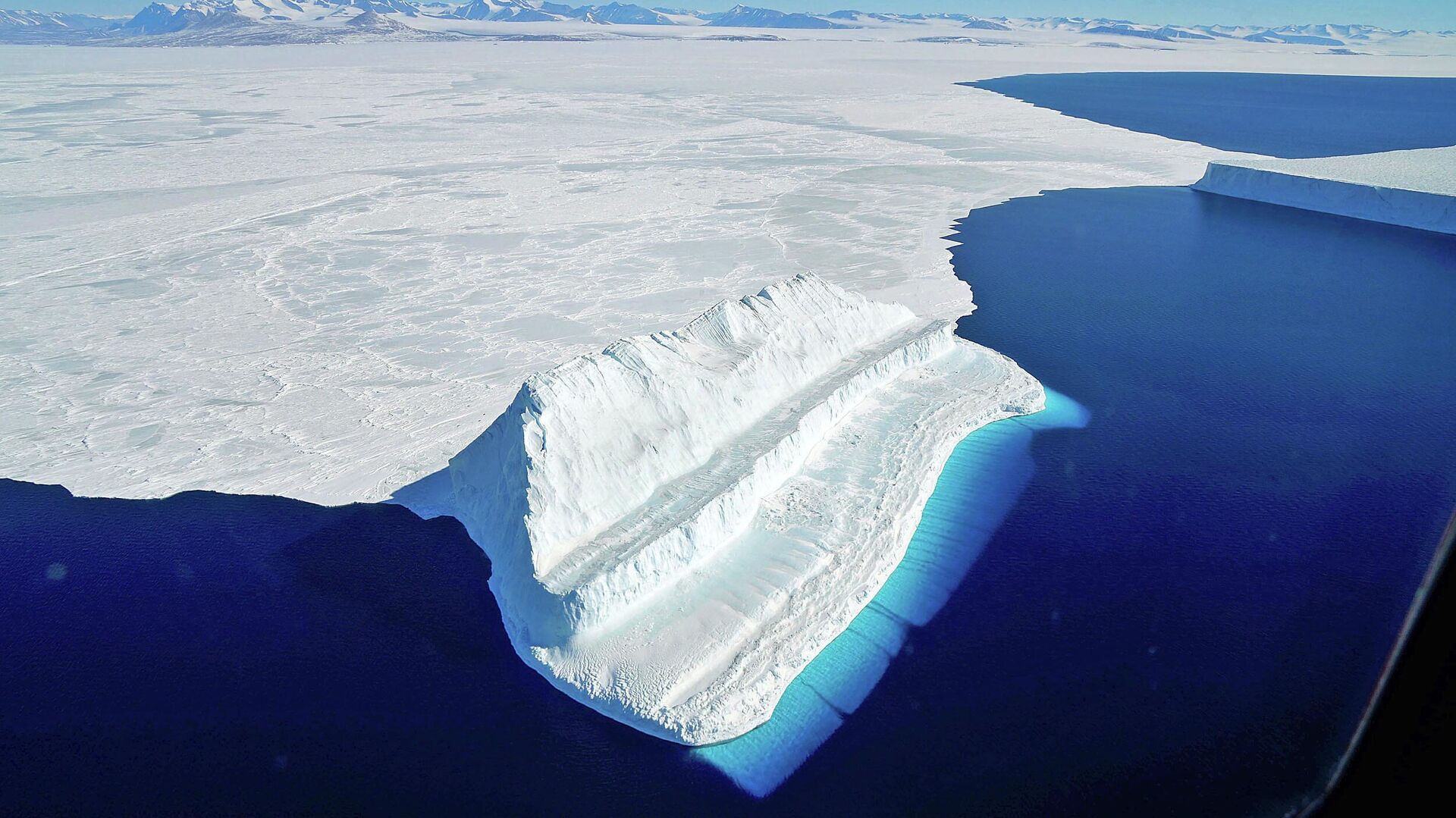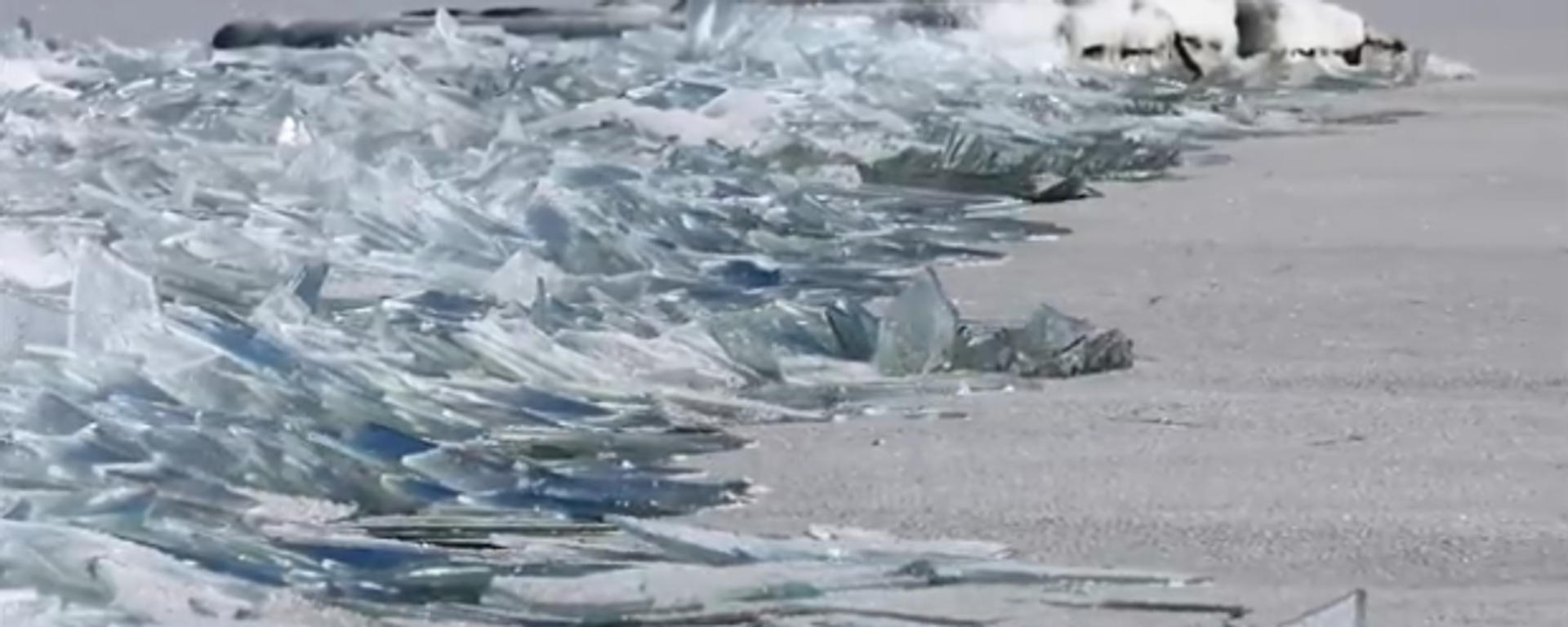https://sputnikglobe.com/20231222/octopus-genetics-reveal-threat-of-potential-antarctic-ice-sheet-collapse-1115758029.html
Octopus Genetics Reveal Threat of Potential Antarctic Ice Sheet Collapse
Octopus Genetics Reveal Threat of Potential Antarctic Ice Sheet Collapse
Sputnik International
Scientists have used Antarctic octopus DNA to understand past of ice sheet collapses an their patterns, uncovering alarming parallels with today's climate conditions.
2023-12-22T22:54+0000
2023-12-22T22:54+0000
2023-12-22T22:51+0000
beyond politics
science & tech
earth
antarctic
antarctica
ice
ice sheets
dna
octopus
https://cdn1.img.sputnikglobe.com/img/07e6/05/07/1095333842_0:131:2500:1537_1920x0_80_0_0_7d7b4772efbb3c713c9b17ca96df740c.jpg
A research approach involving Antarctic octopus DNA has led to a discovery about the stability of the continent's ice sheets. The study reveals isolated octopus populations interbred freely about 125,000 years ago, a genetic mixing that indicates the existence of ice-free channels during a period when global temperatures were similar to current levels.The study's lead author, Sally Lau from James Cook University, Australia, used DNA analysis to reconstruct past environmental changes in Antarctica.By examining Turquet's octopus, which has been present in Antarctic waters for about 4 million years, the researchers uncovered evidence of historical West Antarctic Ice Sheet (WAIS) collapses.The study suggests the WAIS is more vulnerable to collapse than previously thought, potentially leading to a sea level rise of 3.3 to 5 meters. The rise could drastically alter global coastlines, submerging many low-lying areas.The research team analyzed DNA from 96 octopus samples, collected over 33 years, often as bycatch in fishing operations. Their findings suggest two separate WAIS collapses: one during the mid-Pliocene (3-3.5 million years ago) and the other during the Last Interglacial period (129,000-116,000 years ago), a time when the Earth was approximately 1.5 degrees warmer than pre-industrial levels.The findings were published in the Science journal.
https://sputnikglobe.com/20230407/ice-sheets-may-retreat-faster-than-previously-thought-likely-to-affect-sea-levels-badly---study-1109223152.html
earth
antarctic
Sputnik International
feedback@sputniknews.com
+74956456601
MIA „Rosiya Segodnya“
2023
News
en_EN
Sputnik International
feedback@sputniknews.com
+74956456601
MIA „Rosiya Segodnya“
Sputnik International
feedback@sputniknews.com
+74956456601
MIA „Rosiya Segodnya“
octopus dna, pliocene climate, last interglacial climate, ice sheets melting, west antarctic ice sheet, ice sheet collapse
octopus dna, pliocene climate, last interglacial climate, ice sheets melting, west antarctic ice sheet, ice sheet collapse
Octopus Genetics Reveal Threat of Potential Antarctic Ice Sheet Collapse
Scientists have used Antarctic octopus DNA to understand past ice sheet collapses and their patterns, uncovering alarming parallels with today's climate conditions.
A research approach involving Antarctic octopus DNA has led to a discovery about the stability of the continent's ice sheets.
The study reveals isolated octopus populations interbred freely about 125,000 years ago, a genetic mixing that indicates the existence of ice-free channels during a period when global temperatures were similar to current levels.
The study's lead author, Sally Lau from James Cook University, Australia, used DNA analysis to reconstruct past environmental changes in Antarctica.
By examining Turquet's octopus, which has been present in Antarctic waters for about 4 million years, the researchers uncovered evidence of historical West Antarctic Ice Sheet (WAIS) collapses.
The study suggests the WAIS is more vulnerable to collapse than previously thought, potentially leading to a sea level rise of 3.3 to 5 meters. The rise could drastically alter global coastlines, submerging many low-lying areas.
The research team analyzed DNA from 96 octopus samples, collected over 33 years, often as bycatch in fishing operations. Their findings suggest two separate WAIS collapses: one during the mid-Pliocene (3-3.5 million years ago) and the other during the Last Interglacial period (129,000-116,000 years ago), a time when the Earth was approximately 1.5 degrees warmer than pre-industrial levels.
The findings were published in the
Science journal.





